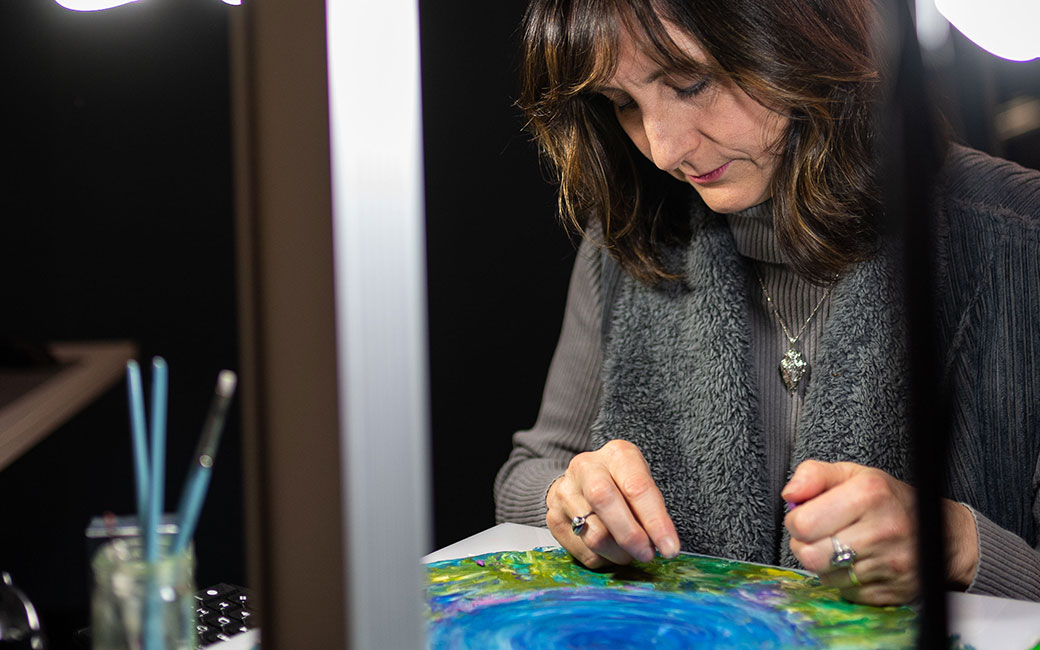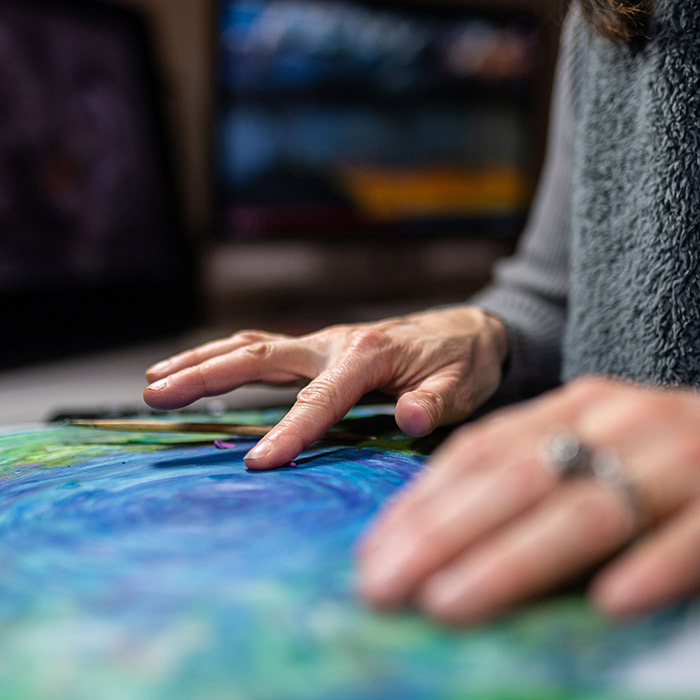Expanding the definition of animation
Film professor and award-winning animator Lynn Tomlinson is researching solutions to the challenges of 360-degree filmmaking.

What if you could combine the immersive qualities of virtual reality with the communal experience of watching a film at a movie theater?
Recent work by Lynn Tomlinson, an award-winning director, animator and associate professor in the Department of Electronic Media & Film, explores potential answers to this question.
Known for her clay-on-glass animations, where modeling clay spread on a glass surface is altered frame by frame to create a moving painting, Tomlinson’s recent work expands the definition of animation and probes how this medium might pose a unique solution to some of the challenges inherent in 360-degree filmmaking.

On campus, Tomlinson found an interdisciplinary, collaborative space to experiment with immersive media: the TU Planetarium.
“I wondered if the kinds of metamorphosis and transformations I do in my clay-on-glass animation would work to create a narrative in this planetarium space,” she explains. “Straight cuts don't work very well in immersive media, but maybe these animated transformations, where things morph or evolve or blend to the next scene, will be a great way to create a narrative.”
To increase interdisciplinary research opportunities for students, Tomlinson and Planetarium Director Christian Ready are developing an interdisciplinary, immersive full-dome media lab with funding from the TU School of Emerging Technologies.
“ With this lab, we’re hoping our students have the chance to work closely with faculty in a one-on-one experience, to do scientific visualization, to tell stories about nature, history, physics, astronomy, using what they know from media production but expanding that into whole different ways of working ”
“With this lab, we’re hoping our students have the chance to work closely with faculty in a one-on-one experience, to do scientific visualization, to tell stories about nature, history, physics, astronomy, using what they know from media production but expanding that into whole different ways of working,” Tomlinson says.
Since first experimenting with full-dome animation as a graduate student earning her Master of Fine Arts in studio art at TU in 2014, Tomlinson has continued to study the possibilities of immersive media alongside other animation projects.
Her current work explores environmental themes, often imagining how non-human beings might view humanity's impact. For her body of work, she received the 2022 Baker Art Award for Film/Video, and the 2021 Edison Innovation Award from the Thomas Edison Film Festival.
In EMF475: Special Topics in Production - Expanded Animation, Tomlinson works with students to break the boundaries of the film and TV screens, including a project in the planetarium.
“It’s a great opportunity for my students to try making things in this planetarium, because it’s such a different kind of space to work in,” she says. “It has similarities to what they might be trying to do in virtual reality, but you have the added benefit that you can see your immersive film with other people.”